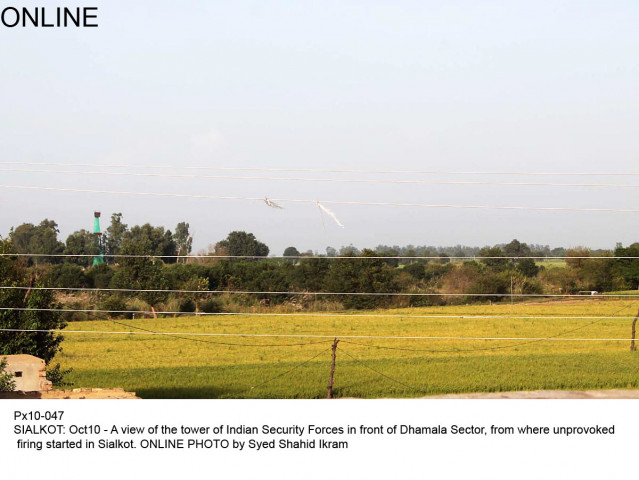To what end?
It is time for both countries to move on and allow the politics of peace a place in the limelight

There have been casualties on both sides, principally civilian, but as most civilians in the area have fled the fighting anyway, the likelihood of further casualties in large numbers among civilians is low. Pakistan has anyway said that it is not targeting civilian areas in India. There have been no independently verified reports of military casualties or losses of equipment and materiel on either side, and with invasion not an option and military gains extremely limited, the point of the exercise must be understood in political terms. This was in part confirmed by the DG Rangers, who said at a briefing that although the objective appears to be military, there could be a political agenda behind the border clashes. Attempting to divine what that might be in the opaque ganglia of Indo-Pakistan relations — with neither side ever fully revealing their hands and mistrust going deep — can be difficult, but it is probably safe to say that neither side wants allout war.
However, the establishments and hawks in both countries have a considerable investment in keeping the pot at simmer rather than boil, and definitely not to allow it to get to the point of boiling over. For the Pakistan Army, the conflict with India has long been considered its raison d’etre, but the geopolitical environment is shifting, and at a speed slightly faster than its usual glacial movement. The recent transition of power in Afghanistan and the withdrawal of foreign troops from that country, coupled with our own fight against extremists in North Waziristan, are producing tectonic ripples. The US is shifting its focus as well, pivoting towards the Pacific for the coming decades and is also doing some fence-mending with India. There is a possibility of Pakistan becoming increasingly marginalised in the middle of this churn. We have few friends and little to offer, which tends to feed the world’s distrust of us.
Into the pot in the last 24 hours or so has come the unexpected — but welcome — ingredient of a shared Nobel Peace Prize with India. It may be that the Nobel Prize committee saw a window of opportunity to make what amounts to a political intervention in the affairs of both nations and split the prize between an Indian and a Pakistani. If true, this is quite timely. Malala Yousufzai, in a speech acknowledging the award on October 10, said that the prime ministers of both countries should come to the award ceremony in Stockholm. If this happens, the unlikeliest of brokerages may see a seed sown.
Neither India nor Pakistan is going to benefit from a war; both can only lose ultimately. Both have much to gain economically from trade, cultural exchanges and diverting expenditure into development rather than ruinously expensive military adventures. In short, it is time for both countries to move on and allow the politics of peace a place in the limelight.
Published in The Express Tribune, October 12th, 2014.
Like Opinion & Editorial on Facebook, follow @ETOpEd on Twitter to receive all updates on all our daily pieces.














COMMENTS
Comments are moderated and generally will be posted if they are on-topic and not abusive.
For more information, please see our Comments FAQ